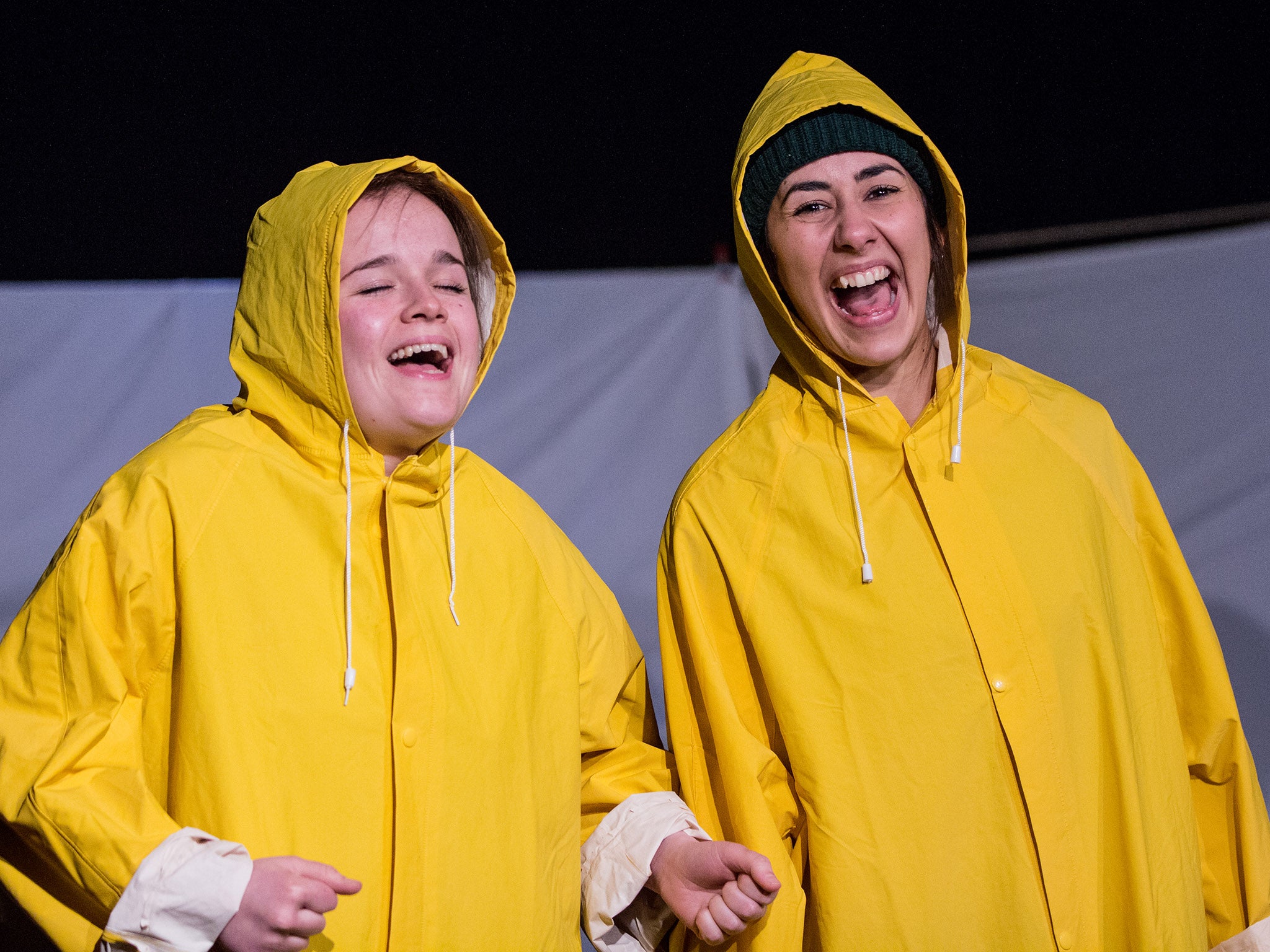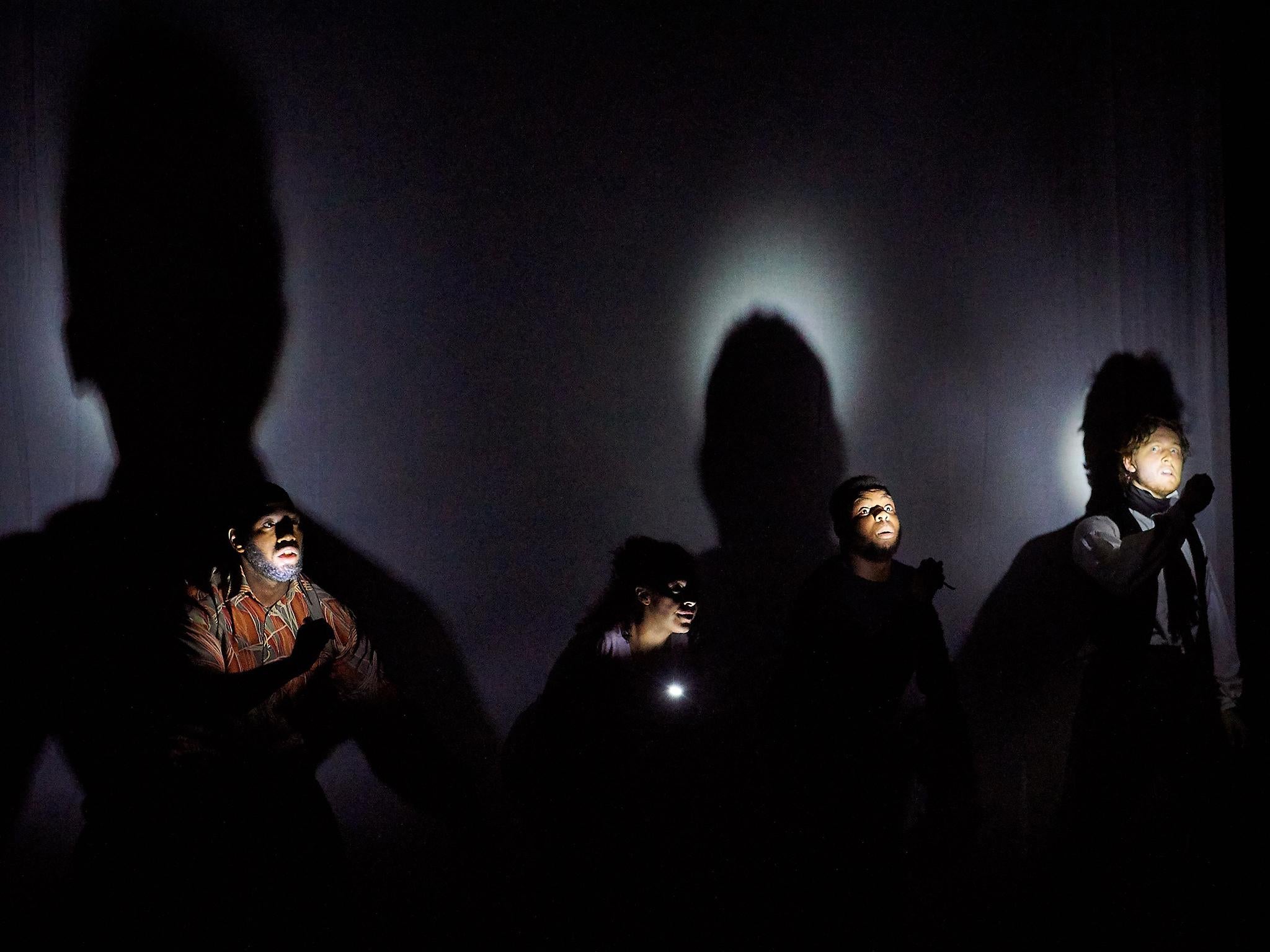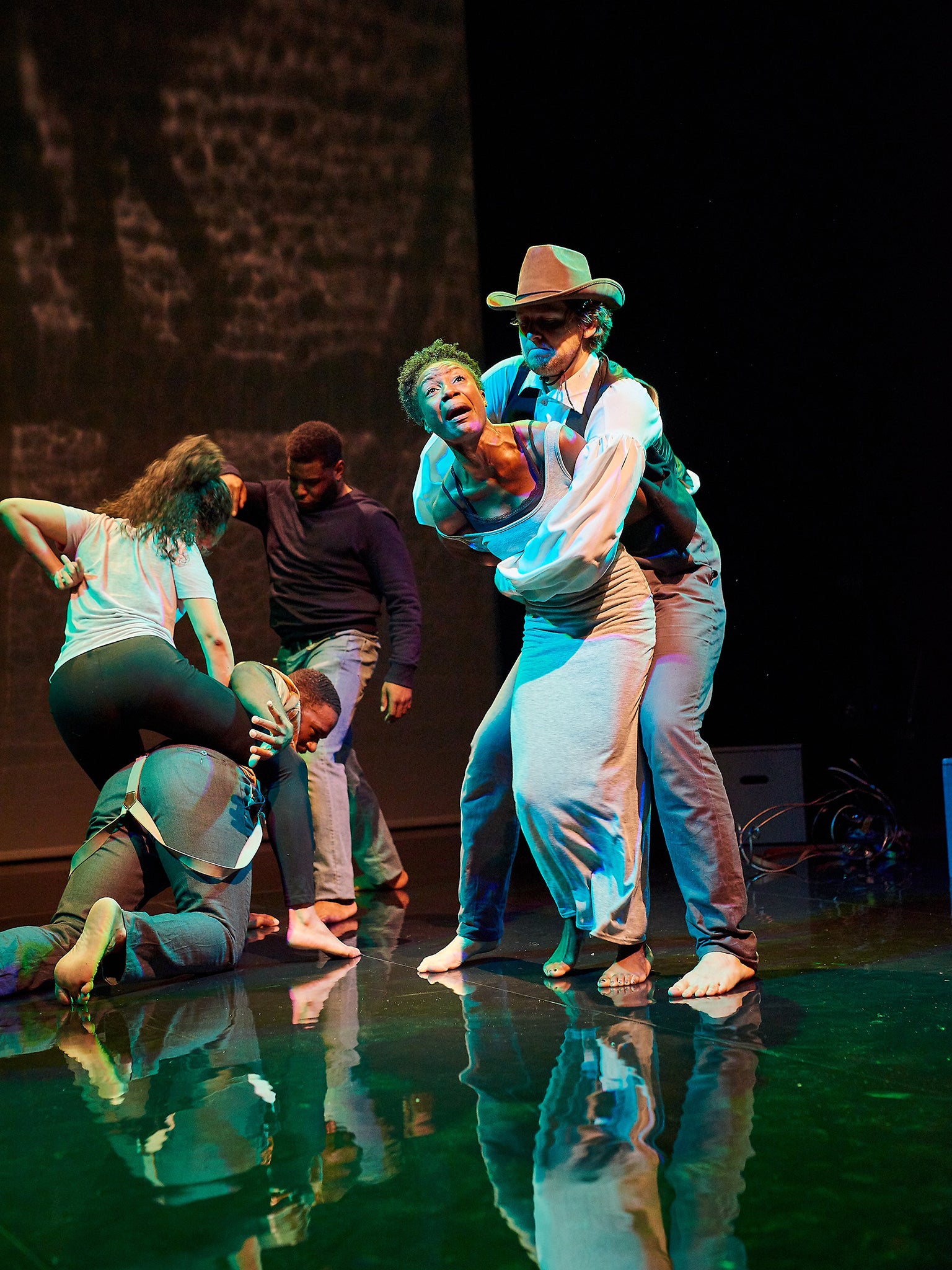Mental health is a hot topic at the Edinburgh Fringe – but are performers just putting on a brave face?
As punters flock to the world’s biggest arts festival, its hundreds of green rooms are brimming with angst

Dressed in beanie hats and cagoules on the stage of a makeshift theatre, three characters fumble through a storm. They buckle helplessly against the roaring sonic tempest blasting through the speakers. Suddenly the storm ends. The sun comes out. Then it’s back, louder and more ferocious.
The actors are from Silent Faces, one of thousands of theatre companies at this year’s Edinburgh Festival Fringe. The piece, A Clown Show About Rain, is a deceptively playful work of physical theatre: as it wears on, it becomes apparent that the tempest at the play’s centre is a metaphor for depression.
“We’ve all suffered quite a lot, at varying levels,” says Josie Underwood, a member of the company. “I think it’s been therapeutic to make a show about it.”
This year there are more than 3,500 shows at the Fringe, which remains the world’s biggest arts festivals, dominated as ever by theatre and comedy in more than 300 venues.
Mental health is increasingly a topic that is covered there. According to the charity Changing Ideas, which gives an annual award for socially engaged theatre, a record 52 shows at the festival last year dealt with the issue. This year it is a still-prodigious 42.
The dark paradox is that for all the opportunities the Fringe provides to stage works about mental health, it is taxing for the mental health of its performers. The hours are long and the costs are high. The entertainers have to drum up their own audiences as well as put on their shows. And many are just starting their careers, unused to the actors’ life, hundreds of miles from home.

Camilla Whitehill, a playwright, says she was worried about some of those she had seen perform. “I worry it’s not safe for them,” she said in an interview. “They look like they’re really struggling. Are they really OK?”
For this year’s Fringe, Whitehill teamed up with Strictly Arts, a company based in Birmingham, England, to devise a crusading work of physical theatre called Freeman, about the fragile mental health of black prisoners.
Its touchstone is the story of William Freeman, a freeborn man of African and Native American descent who was accused of multiple brutal killings in upstate New York. He was one of the first to use the insanity defence in a US court, arguing that the beatings he had received in jail after an earlier, wrongful, conviction had made him insane.
Freeman also weaves in more modern stories, such as that of Sandra Bland, the 28-year-old black woman who, in 2015, killed herself in a Texas prison after she was arrested during a traffic stop.
“I just feel like mental health in the black community is not discussed,” says Whitehill. “I want this show to start a conversation about it.”
Andrew Eaton-Lewis, who runs the arts programme for the Mental Health Foundation, said in an interview that 2015 was the year works about mental health really started appearing at the Fringe. The deaths by suicide of Robin Williams and the influential theatre legend Adrian Howells a year earlier had cast a shadow, he says, and inspired several high-profile shows.

In particular, Eaton-Lewis points to Bryony Kimmings’ Fake It ‘Til You Make It, a two-hander about depression that was partly inspired by Williams’ death. Many theatre practitioners cited the work as an influence, he says.
Eaton-Lewis also notes a generational shift: younger people talk about mental health more openly, he says, and are more interested in works on the subject.
Underwood has seen similar reactions. When handing out flyers for her show, she says, the reaction of many older people is, “Oh God, that sounds horrible”. On the other hand, “Young people light up. They’re excited by it.”
The Mental Health Foundation introduced a Mental Health Fringe Award last year, a prize for a work of outstanding artistic merit on the subject. But Eaton-Lewis says that working to break the silence around the topic is less of a priority for him now that so many artists talk about it openly. He is now more concerned with the mental wellbeing of the artists themselves, he says.
“Doing an intimate show about a traumatic experience on the Edinburgh Fringe is the most stressful environment for a show, probably in the world,” he says.
Eaton-Lewis is also organising a workshop for performers called “Mental Health Is a Fringe Issue”, providing an opportunity to talk through both the Fringe experience and how to make theatre about mental health. He says there also free events organised by the festival itself, including “Conquering Performance Anxiety” – a session teaching practical mindfulness, breathing and meditation, and “A Mentally Well Fringe” – a series of therapeutic drop-in sessions.
Ultimately, though, there is no safety net. The Fringe is tough, and performing personal work can be painful. Eaton-Lewis points to the success of the 2017 festival’s breakout star, Hannah Gadsby, and her searing show Nanette, which became a hit for Netflix after it was recorded at the Sydney Opera House. “You just hope that somebody making a show like that is able to take care of themselves through that process,” he says. (Gadsby planned to perform at this year’s Fringe, but she pulled out in June, citing scheduling conflicts.)
The Fringe provides one of the best opportunities in the English-speaking world for an unknown theatre or comedy act to forge a reputation. Nobody will stop you from booking a slot. But there may be nobody to look out for you, either. It is a long shot at success that thousands are willing to take.
© New York Times
Join our commenting forum
Join thought-provoking conversations, follow other Independent readers and see their replies
Comments